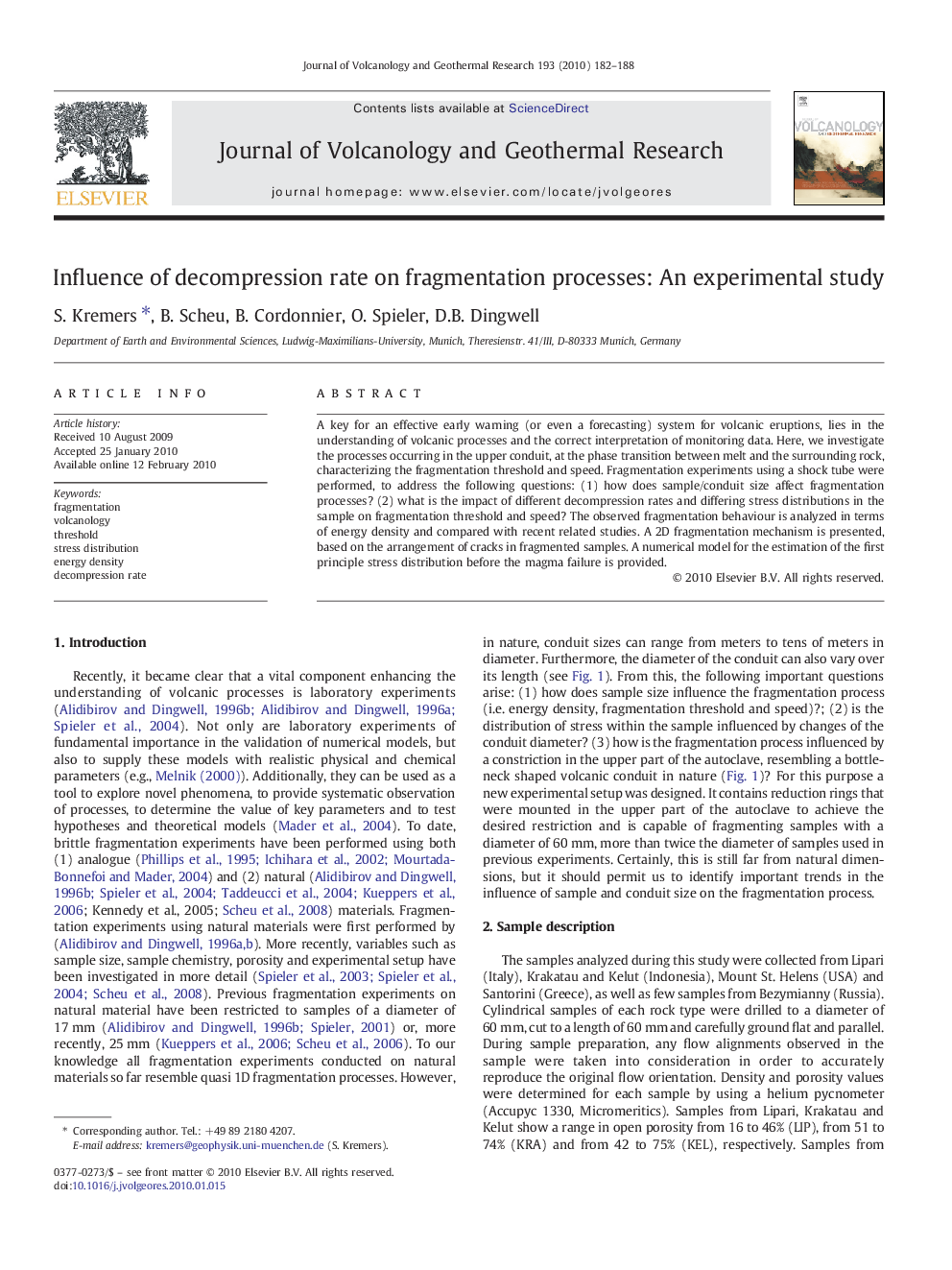| Article ID | Journal | Published Year | Pages | File Type |
|---|---|---|---|---|
| 4713955 | Journal of Volcanology and Geothermal Research | 2010 | 7 Pages |
Abstract
A key for an effective early warning (or even a forecasting) system for volcanic eruptions, lies in the understanding of volcanic processes and the correct interpretation of monitoring data. Here, we investigate the processes occurring in the upper conduit, at the phase transition between melt and the surrounding rock, characterizing the fragmentation threshold and speed. Fragmentation experiments using a shock tube were performed, to address the following questions: (1) how does sample/conduit size affect fragmentation processes? (2) what is the impact of different decompression rates and differing stress distributions in the sample on fragmentation threshold and speed? The observed fragmentation behaviour is analyzed in terms of energy density and compared with recent related studies. A 2D fragmentation mechanism is presented, based on the arrangement of cracks in fragmented samples. A numerical model for the estimation of the first principle stress distribution before the magma failure is provided.
Related Topics
Physical Sciences and Engineering
Earth and Planetary Sciences
Geochemistry and Petrology
Authors
S. Kremers, B. Scheu, B. Cordonnier, O. Spieler, D.B. Dingwell,
